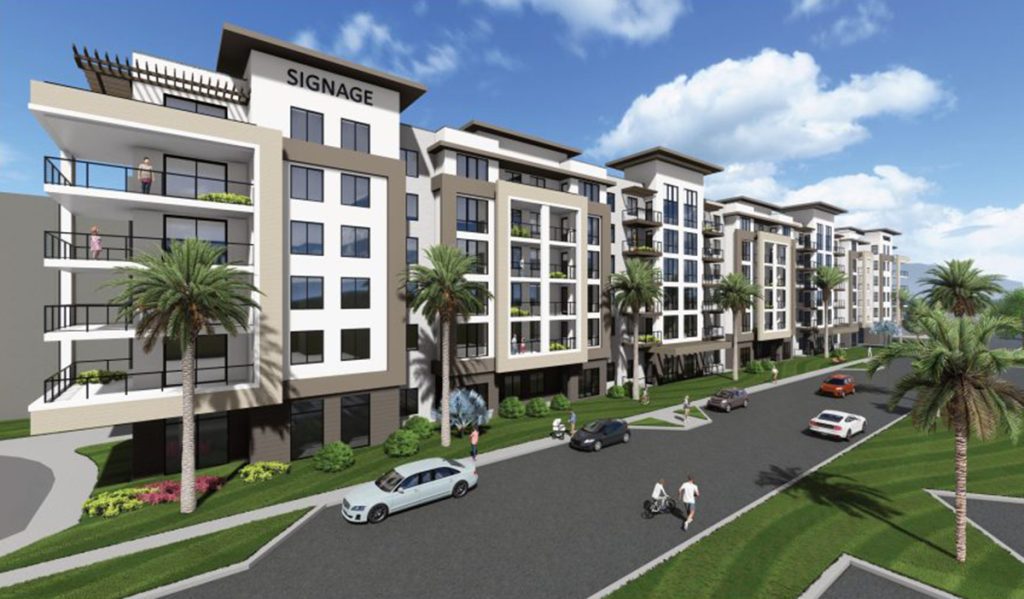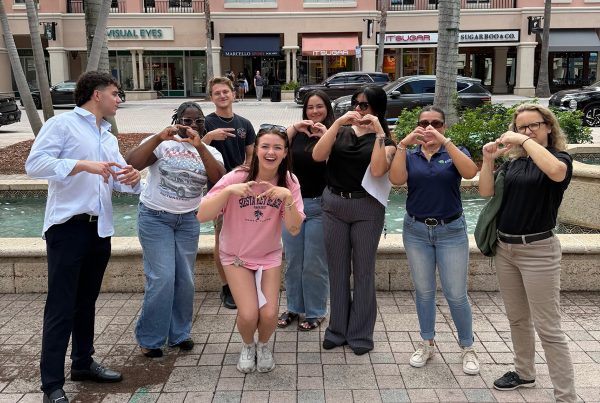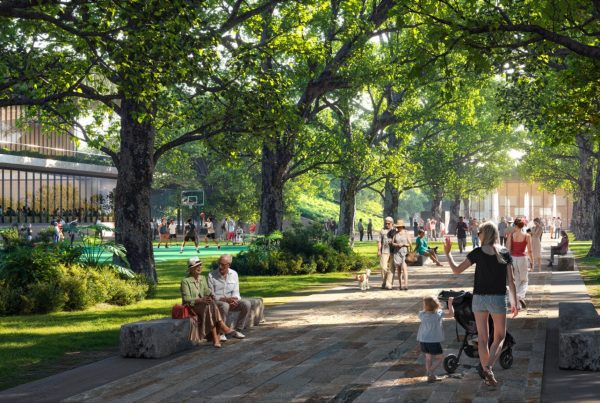In late May, I wrote about the juxtaposition of Gov. Ron DeSantis signing legislation that removed climate change as a state priority while Floridians were enduring record unseasonal heat. The governor’s people blamed that on, well, summer.
After Hurricane Helene and with the approach of Hurricane Milton, however, the political ideology behind House Bill 1645 looks especially reckless.
To review, the legislation wiped out roughly 50 references in state law to combating “climate change.” According to the bill analysis, Florida’s priority now is to guarantee “an adequate, reliable and cost-efficient supply of energy for the state in a manner that promotes the health and welfare of the public and economic growth.”
Among other things, HB 1645 repeals a slew of green energy grants. It makes it easier to transport natural gas —Florida’s largest generating source—from other states. It prohibits the construction of wind turbines within one mile of the coast. It prohibits local governments from creating alternative energy programs. It prohibits community organizations from banning gas stoves.
Yet Helene epitomized this new era of hurricanes fueled by global warming and the climate change that results. Jeff Masters, a former Hurricane Hunter who now blogs for Yale Climate Connections, wrote that hot tub-like temperatures in the Gulf of Mexico caused Helene to intensify more rapidly, collect so much moisture that rainfall flooded areas 500 miles from landfall, and pack a more powerful storm surge from rising seas. The same is happening with Milton.
If you saw the pictures of surge damage from Fort Myers to Cedar Key, consider that Helene passed roughly 110 miles offshore as the storm went north. Consider that the Monday morning forecast had Milton tracking at an angle almost directly into Tampa Bay—the state’s nightmare hurricane scenario.
As I wrote previously, critics of HB 1645 believe that Gov. DeSantis and the Republican-led Legislature created it to please Florida Power & Light and the state’s other investor-owned utilities that rely on natural gas. The fuel is much cleaner than coal and cleaner than oil, but it still doesn’t reduce fossil fuel emissions enough to stave off the effects of climate change.
Sens. Lori Berman and Tina Polsky, the Democratic state senators who represent Boca Raton, West Boca and Delray Beach, voted against HB 1645. Rep. Peggy Gossett-Seidman, the Republican House member who represents Boca Raton, voted for it. We spoke Friday.
“It’s possible,” Gossett-Seidman said, “that [the law] needs readdressing.” But why would Tallahassee enact something that so clearly runs against the state’s interest?
“Terminology,” Gossett-Seidman said. “It just seems like there’s some semantics that gets pushback.”
GOP phobia on this issue is not new. When Rick Scott was governor, he forbade state agencies to use the terms “climate change” and “global warming.” He remains a denier. In the wake of Helene, Scott said, “We just have to understand we’re having way more storm surge, for whatever reason. You don’t know why we are having more storm surge.”
In fact, we do. Consider another fact from Masters.
Tampa Bay last suffered a direct hit from a hurricane in 1921. Since then, the waters have risen roughly a foot. Would the three causeways from Tampa to St. Petersburg across the bay hold up against a 2024 surge?
HB 1645, DeSantis said, was a response to “radical green zealots.” Actually, cold-eyed capitalists such as Henry Paulson, who was George W. Bush’s treasury secretary, have called climate change a threat to the American economy.
That goes double or more for Florida, especially when it comes to the real estate industry. Zillow and Redfin now take climate change exposure into account when assessing homes. All those financial firms that fled from New York during the pandemic could flee Florida if the state looks vulnerable.
Then there are property insurance rates. In Florida, any direct hit on one area is an indirect hit on everyone.
As I wrote previously, Boca Raton and Delray Beach will continue their efforts to combat climate change. Boca Raton is looking to replace its sustainability officer. But while cities might try to prepare for the effects of climate change, HB 1645 means that Florida won’t do anything about the cause.
I asked Gossett-Seidman what “terminology” her Republican colleagues might accept. She asked me for ideas.
Changes to Palm Beach County’s floodplain maps
On a related topic, local officials have been hearing complaints from residents about Palm Beach County’s new floodplain maps. They will take effect Dec. 20.
Under the changes, some homeowners may find that they need to buy flood insurance for the first time. Before griping, though, they may need to understand some basics.
Neither all-peril or wind-only home insurance policies cover damage from flooding or storm surge, even though it’s wind-driven water. The Washington Post reported that across the seven states where Helene hit, fewer than 1% of inland homes had flood insurance.
Some homeowners likely didn’t consider such coverage essential, since they live so far from the ocean. Cost may have been another factor. Whatever the reason, however, those homeowners have no replacement coverage.
Most flood policies come through the National Flood Insurance Program. Some private carriers also offer coverage. Rates for the federal program have been rising, to make the program more solvent, but policyholders still get what amounts to a subsidy.
Boca Raton and Delray Beach participate in the program that offers residents a discount based on local government efforts to mitigate flood damage. As climate change causes cities in Florida to reassess risk, homeowners may need to do the same when it comes to flood insurance.
Homeowners can use this link to check their status.
Boca City Council to consider approval of variance for controversial oceanfront house

On the agenda for tonight’s Boca Raton City Council meeting is approval of a variance to allow a house on the lot at 2600 N. Ocean Blvd.
As I have reported, the city in August agreed to a settlement with the developer, who sued after the council in 2019 denied a variance for a much larger project. The city lost the litigation, which accused officials of failing to produce public records.
The staff memo notes that this version “meets or exceeds” setback requirements. At 38 feet high, the house would be under the limit of 50 feet. Though the environmental advisory board voted 4-0 to deny the variance to build near the water, the staff recommends approval, noting that the developer still would have to get a permit from the Florida Department of Environmental Protection.
If the council denies the variance, the settlement is off. I’ll have more after the meeting.
Approval for Boca Center on city agenda

Also on tonight’s agenda is approval of a residential project for one of Boca Raton’s main commercial areas.
That would be Boca Center, the 12-acre office/retail/hotel complex on North Military Trail just east of Town Center mall. The owner proposes to add 295 apartments. It is the first project to reach the council under the new commercial industrial multi-family development (CIMD) designation. Fifteen percent of the units would be affordable and workforce housing, with lower than market rents.
According to the staff memo, the project is “consistent with adjacent land uses” and would contribute to the city’s effort to increase mobility. The planning and zoning board unanimously recommended council approval.
It will be interesting to hear Mayor Scott Singer’s comments. He is the only remaining member of the council that in 2018 rejected a plan by property owners in that Midtown neighborhood for creation of a transformed district featuring housing. Tri-Rail wanted to build the city’s second station there.
In addition, the property owners—not city taxpayers—would have paid for infrastructure improvements. Singer joined the 4-1 majority to oppose the plan. He and others said it would not be compatible.
I’ll have more after the meeting.







